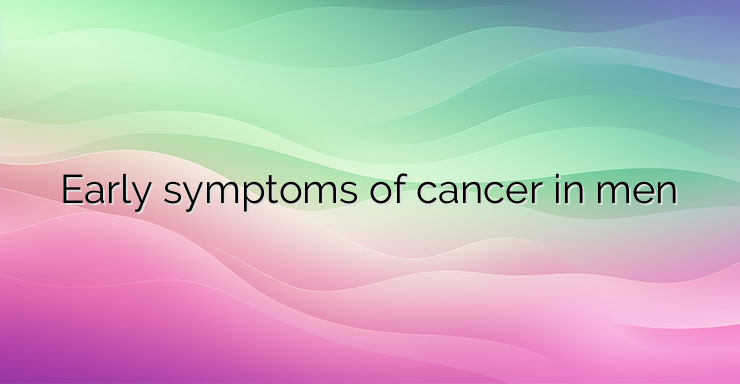Cancer is among the common causes of death among older men. Following a healthy diet can reduce the risk of developing certain types of cancer, but factors such as genetic predisposition may play a greater role in the development of oncological diseases. Once the cancer has already spread, it can be difficult to treat. Knowing the early symptoms can help seek treatment earlier and increase the chances of remission. Early symptoms of cancer in men include: Changes in the gastrointestinal tract; Rectal bleeding; Changes in the urinary tract; Blood in the urine; Persistent back pain; Unusual cough Swelling in the testicles; Excessive fatigue; Unexplained weight loss; Lumps in the breast A bowel disorder is not a worrisome condition when it occurs infrequently, but frequent problems in the gastrointestinal tract can indicate serious conditions, such as colon or rectal cancer. Colon cancer can develop in any part of the colon, while rectal cancer affects only the rectum, which connects the colon to the anus. Frequent diarrhea and constipation can be symptoms of cancer, especially if these bowel problems appear suddenly. Problems such as frequent gas and abdominal pain can also be a sign of cancer. A change in peristalsis (symmetric muscle contraction) of the bowel can also be a symptom of cancer. Rectal bleeding is also a possible early symptom of rectal cancer. The condition is especially important to monitor if bleeding continues or if the patient is found to have iron deficiency anemia due to blood loss. The presence of blood can be seen in the stool. Although there are other more common causes of rectal bleeding such as hemorrhoids, one should not attempt to self-diagnose the condition when these symptoms are present. A doctor’s consultation is required regarding complaints. Regular colon cancer screenings are recommended, especially after age 50. Urinary incontinence (spontaneous passing of urine) and other changes in the urinary system can develop with age. However, some symptoms may indicate prostate cancer. Prostate cancer is most common in men over the age of 60. Common symptoms of urinary tract cancer include: Urinary incontinence; Difficulty urinating; Inability to urinate despite urging Bibliography: Centers for Disease Control and Prevention (CDC). Leading causes of death in males Centers for Disease Control and Prevention (CDC). Cancer and Men Feature


Leave a Reply